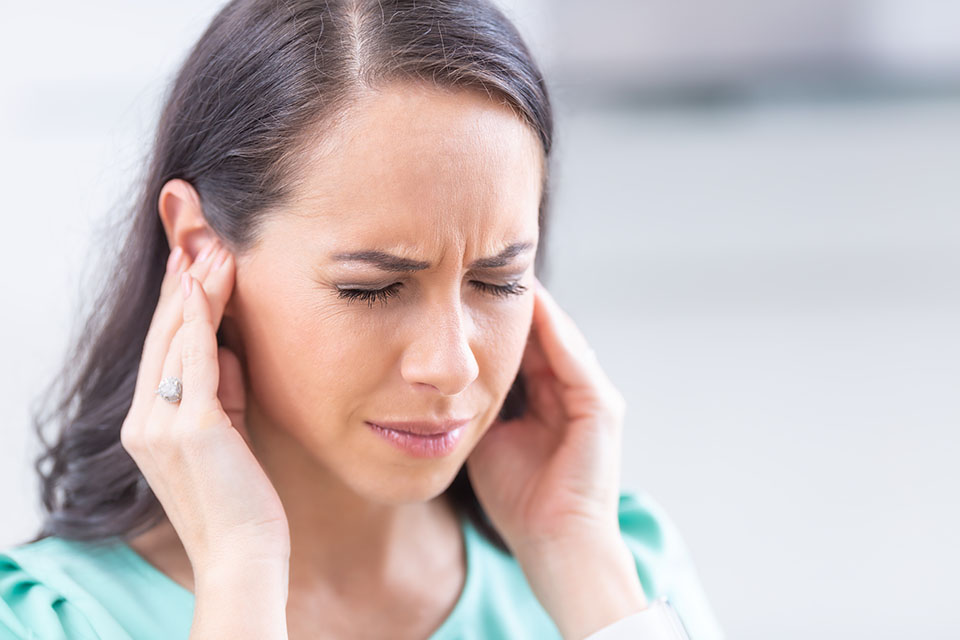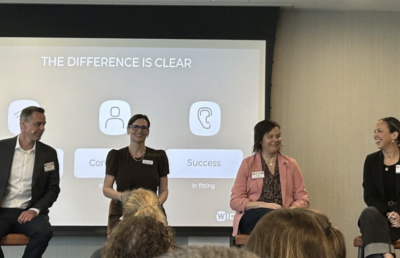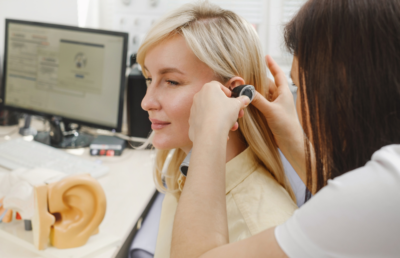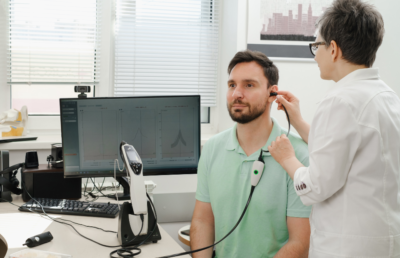High-frequency sensorineural hearing loss causes problems with hearing high-pitched sounds — frequencies of 2,000 Hz or higher. It can affect people of all ages, but is commonly connected to age-related hearing loss, or hearing loss due to a one-time loud noise exposure.
What are the symptoms?
If you have high-frequency sensorineural hearing loss, you may struggle to hear certain consonants that are spoken at a higher pitch, for instance, S, H, or F. Speech may sound muffled, especially through the telephone, the television, or in noisy environments. You may also find it harder to hear women’s and children’s voices, as well as the sound of birds chirping and singing, doorbells, or devices beeping. Holding conversations in larger groups or in places with background noise may also be difficult. It feels like you can hear people speak but struggle to understand everything they say.
What causes high-frequency sensorineural hearing loss?
There are tiny hair-like sensory hearing cells in your inner ear that receive the sounds and convert them to signals that are transmitted to the brain by the auditory nerves. When these cells get damaged, sensorineural hearing loss occurs. Damage can be caused by:
Aging
Age-related hearing loss is common among older adults. Because this is a slow process, usually both ears are affected equally. The first warning sign normally is when a person finds it difficult to understand speech in noisy environments.
Noise
Millions of Americans experience hearing damage due to noise-induced hearing loss. The damage can occur as a result of a one-time loud noise exposure or due to the consistent use of loud portable music players — with constant exposure to noise louder than 85 decibels.
Genetics
Hearing loss may be partially genetic. If somebody in your family has hearing loss, you’re predisposed to developing it, too.
Medications
Some types of drugs are harmful to your hearing health. Some of these include aspirin in large quantities, drugs used in chemotherapy treatments, and aminoglycoside antibiotics.
Diseases
Menière’s disease targets your inner ear and causes fluctuating hearing loss, tinnitus, and vertigo. It’s caused by a buildup of fluid in the inner ear that may be a result of a viral infection, immune response, a blockage, or a genetic predisposition. Menière’s disease generally affects one ear and often occurs between the ages of 30 and 50.
How to diagnose high-pitched sensorineural hearing loss?
The hearing loss can only be diagnosed through a proper hearing test conducted by a professional audiologist. The results are plotted on an audiogram. This type of hearing loss is also often called ski-slope hearing loss, as it has the shape of a ski-slope on an audiogram — indicating that you have trouble hearing frequencies between 2,000 and 8,000 Hz.
How can it be treated?
High-frequency hearing loss is usually irreversible. Once the structures in your inner ear are damaged, it often isn’t possible to reverse hearing loss. If your hearing loss is serious enough to impair your life, a hearing aid that targets high frequency sounds may be the best option. Typically, the best type of hearing aid for high-frequency hearing loss is what’s known as a receiver in the ear (RITE) with a dome that sits in the ear canal. This style has an open fit, so it doesn’t muffle the low-frequency sounds that you still hear naturally. It can be programmed to amplify only the frequencies you find difficult to hear.
Can it be prevented?
While high-frequency hearing loss is irreversible, in some cases, it’s preventable. Always protect your hearing against exposure to noise, especially noise louder than 85 decibels. Keep the volume low on your personal electrical devices and wear hearing protection if you know you’ll be exposed to a noisy environment. Ear plugs and noise-cancelling headphones are great to have.
If you’re worried that you might be experiencing hearing loss, don’t hesitate to get in touch with us and schedule an appointment for a hearing test today.





